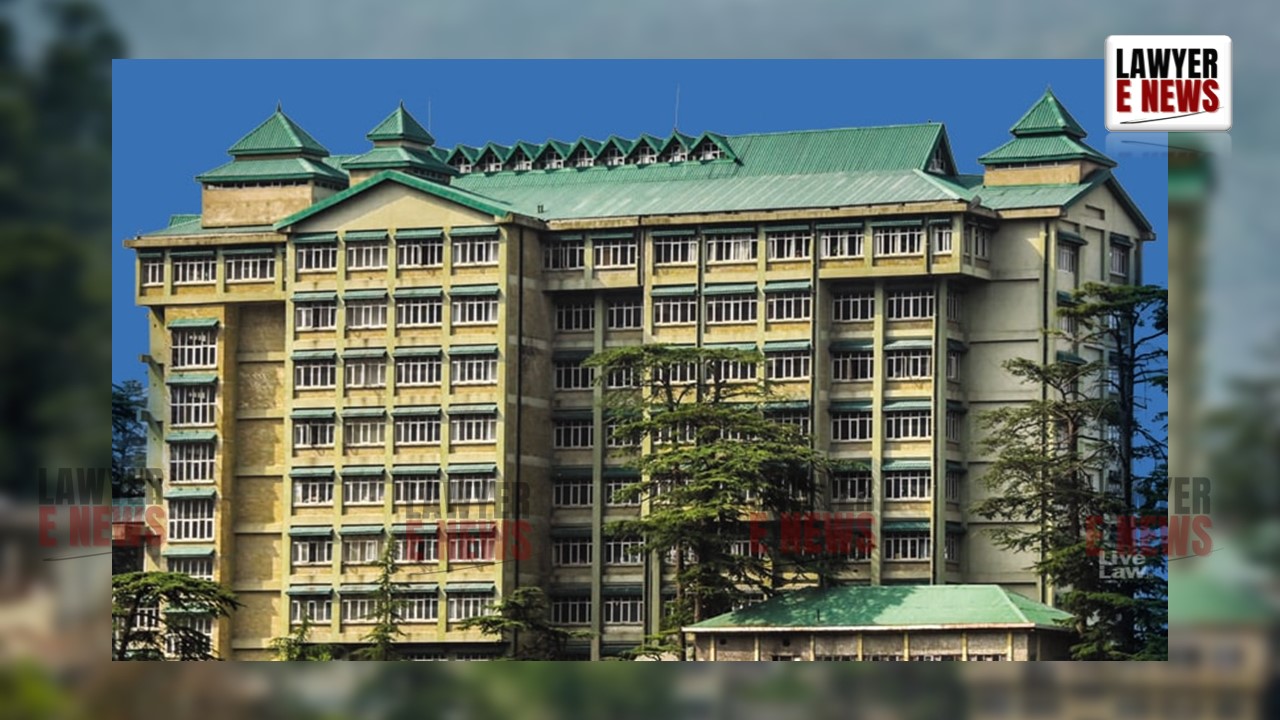-
by Admin
15 February 2026 2:36 AM



High Court of Himachal Pradesh addressed the interplay between the Hindu Widow's Remarriage Act, 1856, and the Hindu Succession Act, 1956, in deciding whether the remarriage of a widow before 1956 extinguishes her rights over her deceased husband’s property.
The appeal, challenging lower court judgments, was dismissed, affirming that the plaintiff's claims lacked legal and evidentiary support.
The appellants, plaintiffs in the suit, claimed ownership of land measuring 1 Kanal and 13 Marlas in Hamirpur, Himachal Pradesh, as successors of Amar Nath, who died in 1946. They contended that Narotmi Devi, Amar Nath’s widow, had forfeited her rights to the property by remarrying another man, Durga Dass, before 1956. The plaintiffs relied on the Hindu Widow's Remarriage Act, 1856, which provides under Section 2 that a widow’s rights to her deceased husband’s property cease upon remarriage.
The defendants argued that the plaintiffs’ assertions lacked substantiation in the trial court and their reliance on the 1856 Act was introduced only at the appellate stage, which was procedurally impermissible.
Legal Issue: Can a Widow Retain Property Rights Post-Remarriage Before 1956?
The substantial question of law admitted by the court was whether the judgment of the first appellate court affirming the trial court's decision was a result of misreading and misinterpreting the evidence and law applicable to the case.
Lack of Pleadings and Evidence: The plaintiffs' claim based on the 1856 Act was neither pleaded in the trial court nor supported by evidence. The court emphasized that issues not raised before the trial court cannot be introduced at the appellate stage.
Interplay of Acts: The plaintiffs argued that under the Hindu Widow's Remarriage Act, 1856, Narotmi Devi’s rights ceased upon remarriage and that the Hindu Succession Act, 1956, which grants absolute ownership rights to widows, would not apply retrospectively to her. However, the court noted that these arguments were inconsistent with the plaintiffs’ original claim, which asserted adverse possession and disqualification due to alleged unchaste conduct, not remarriage.
Evidence and Submissions: The court found no misinterpretation of evidence or misapplication of law by the lower courts. Entries in the family register indicating the birth of Narotmi Devi’s child in 1962 were held insufficient to establish remarriage before 1956, as these entries lacked corroboration.
Customary Disinheritance Claims: The plaintiffs’ assertion that Narotmi Devi, by virtue of her alleged unchaste life and separation from Amar Nath, lost her rights under local customs was also dismissed as unproven.
The High Court affirmed the decisions of the lower courts, which had dismissed the plaintiffs' claims, holding that the legal and evidentiary foundation for their case was lacking. It reiterated the necessity of proper pleadings and evidence to support claims of disinheritance or forfeiture of property rights under the 1856 Act.
Date of Decision: January 3, 2025
